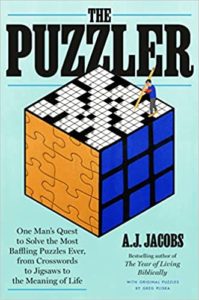
Sound of Metal
Released in theaters Nov. 20, 2020
Directed by Marius Marder
Starring Riz Ahmed and Olivia Cooke
Available on Amazon Prime
I came across this movie while surfing last week. I recognized the title – perhaps because it had been nominated in 2021 for several Academy Awards. The title led me to believe it was a documentary about the heavy metal music industry. But the description indicated otherwise.
Grim. Stark. And depressing. “Any time I see a movie described in those terms, I know I’m going to like it.” That’s what my old friend Ken Danz used to say. (RIP, Ken. His ashes sit beside a stack of reference books in my office.) He would have liked Sound of Metal.
And he wouldn’t have been alone. There are plenty of people that liked it when it was released in 2020.
For me, Sound of Metal was difficult to watch. So difficult, I watched it in three 45-minute segments.
What Was Difficult About It
* The subject matter: Addiction and disability.
* The plot: A recovering heroin addict finds salvation as a drummer in a heavy metal band, only to lose his hearing.
* The cinematography: It emphasized the grimness of the mood and starkness of the opportunities.
What I Liked About Sound of Metal
* It did not sugar-coat either of the issues: addiction or disability.
* The principal actor: He was mesmerizing.
* The actor that plays the head of the recovery center.
Interesting
* Along with CODA and Drive My Car, this is the third movie I’ve watched this year with deaf characters. Aside from Children of a Lesser God (1986), I can’t even remember seeing another movie that had anything to do with the deaf community.
* Sound of Metal, Marder’s feature debut, took more than a decade to produce. It was based on an unfinished documentary by Derek Cianfrance – Metalhead – about a heavy metal drummer with ruptured eardrums.
Critical Reception
* “A drama that’s as visceral and hard-hitting as its protagonist’s drum solos.” (Tara Grady, Irish Times)
* “A film that deserves to be seen by the widest possible audience, reminding us of cinema’s unique ability to challenge, entertain, uplift, and unite.” (Mark Kermode, Observer, UK)
* “The movie may be stylized, but it’s not ostentatious. Its universe feels lived in and authentic.” (Bilge Ebiri, New York Magazine)
* “For the most part, the heavy lifting of the film is left to Ahmed, and he handles it effortlessly, in a moving and unforced turn that, while characterized by moments of rage and destruction, is ultimately a journey of acceptance.” (Michael O’Sullivan, Washington Post)
You can watch the trailer here.
 MarkFord
MarkFord

